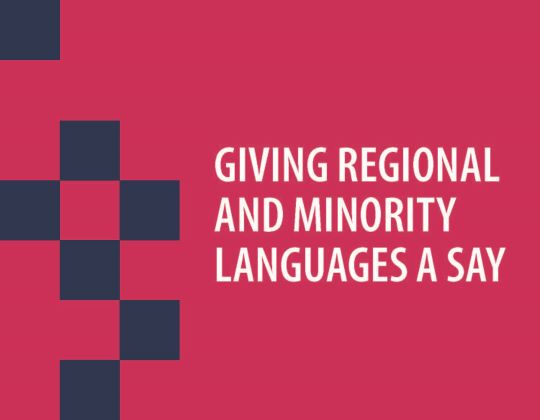The Committe of Experts has urged the United Kingdom to adopt language strategies for Irish and Ulster Scots, in particular, and to strengthen the teaching of all regional or minority languages in the UK – including Cornish, Scots, Scottish Gaelic and Welsh – as well as Manx Gaelic on the Isle of Man.
These were among the main recommendations in the latest report on the United Kingdom and the Isle of Man published today by the Committee of Experts of the European Charter for Regional or Minority Languages.
Overall, the Committee found that there is a good framework for protecting regional or minority languages, but there is an over-reliance on volunteers for the development of some languages – notably Cornish, Scots and Ulster Scots – and a lack of adequate and systematic funding.
The report also notes that minority language education lies within the remit of local authorities, which are largely responsible for both ensuring delivery and stimulating demand. In practice, this leads to a very uneven situation across different regional or minority languages, with the training and recruitment of teachers remaining problematic for all such languages.
Similarly, the use of regional or minority languages in public administration is largely left to the discretion of regional and local authorities. This also leads to a very varied situation: the ability to communicate in Welsh is guaranteed in all relevant local councils, but this is not always the case concerning Scottish Gaelic, Scots, Irish, Ulster Scots or Manx Gaelic and it is not possible for Cornish.
More generally, the report calls for measures to promote awareness of regional and minority languages and tolerance towards people who speak them, highlighting a general lack of knowledge of the value and contribution of such languages – and the cultures they represent – within the English-speaking majority.
Noting many cuts in funding in recent years, the experts also urged the authorities to enhance support for minority language broadcasting and to ensure an appropriate regulatory framework to guarantee its future sustainability.
Concerning Northern Ireland in particular, the Committee noted that the language issue remains politicised despite the recent introduction of new legislation. It called for efforts to further promote both Irish and Ulster Scots in Northern Ireland, despite political tensions, highlighting the lack of teachers for Irish-medium education at secondary level as a particular concern.
Today’s report is based on information provided by governmental and non-governmental sources, including information obtained during the Committee’s visit to the United Kingdom in February 2024. It has been published together with comments from the UK authorities.





